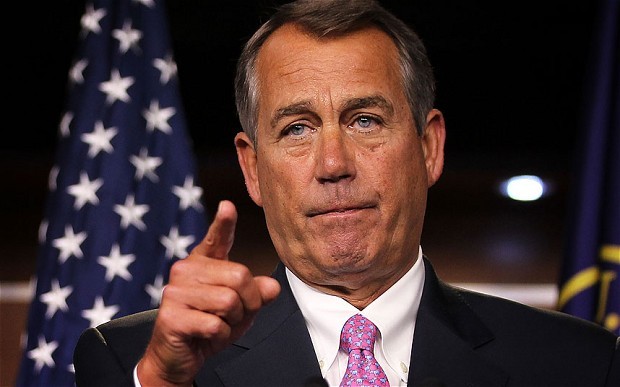
For Republicans, it sure was fun while their hopes lasted, but many have concluded the Supreme Court might not be able to kill off the Affordable Care Act (ACA) after all.
When the high court rules this spring in King v. Burwell, even a decision that would invalidate subsidies to cover health insurance in 37 states where the federal government operates exchanges may not necessarily spell doom for those subsidies or the system at all.
Republicans are already anticipating President Obama’s response would be an executive order directing federal marketplaces to immediately belong to those states or a bill asking Congress to do the same, or at least to extend the subsidies in some form.
Somewhere between 5 million and 7 million people, many from Republican states that refused to start exchanges, will be at risk of price hikes that could eventually torpedo the entire law. The GOP is scrambling for an appropriate response as a new Kaiser Family Foundation poll shows, in the case of a ruling against the law, that 64 percent of Americans want Congress to extend subsidies in affected states — including 40 percent of Republican respondents.
Over time, ObamaCare has morphed into a zombie Republicans cannot extinguish.
First, there were the angry town halls in August of 2009, but then the bill passed in March of 2010.
There was a historic, nationwide victory for Republicans in the midterm elections of 2010, resulting largely from antipathy toward ObamaCare.
Then, to conservatives’ horror, in June 2012, the Supreme Court ruled that the taxes in the ACA were constitutional, with the deciding vote of Chief Justice John Roberts.
Then, when there was hope of electing a GOP president to repeal the law, the party nominated someone who had created the very model for the law in Massachusetts and wouldn’t denounce it, and Obama was reelected in 2012.
Now, Republicans have expanded their majority in the House, taken control of the Senate for the first time in eight years, and the law faces a high court review that could obliterate its very structure. The Affordable Care Act’s approval, at 40-46 positive/negative, stinks. Yet the law, no matter the ruling in June, not only could survive, but it could subsequently be improved.
Conservatives on the far right, not surprisingly, are hoping for the insurance price death spiral should the court declare subsidies in federal exchanges illegal. Other Republicans say it would not be the responsibility of the Congress to provide any response, while still others say that preparing a thoughtful response that prevents chaos could actually smooth the way for a majority of the nine justices to rule against the subsidies.
Some Republicans describe it as the last chance for the undoing of the ACA. In order to force it into the 2016 presidential debate, one option would be the extension of subsidies that would sunset in late 2017, in order for a new president and a new Congress to fix it again or repeal it. For an extension, Republicans would want concessions like reinstating the 40-hour work week and eliminating both the employer and individual mandates.
But cajoling 13 Democrats in the Senate to override a veto seems far from likely. So does refusing to extend subsidies, because millions of those possibly affected are from red states Republicans represent or blue ones they want to keep or win. The 56th vote in the House to repeal the ACA saw three new GOP defections, from Republicans in swing districts. States potentially affected by the King v. Burwell decision include 2016 battlegrounds like Florida, North Carolina, Wisconsin, Pennsylvania, and Ohio. There are Republican senators running for reelection two years from now in all five.
Five years after passage, ObamaCare is a paradox. It’s deeply unpopular — but just not enough to destroy it.
(Bryce Ashby is a Memphis-based attorney and board chair at Latino Memphis, Inc.; Michael J. LaRosa is an associate professor of history at Rhodes College.)

